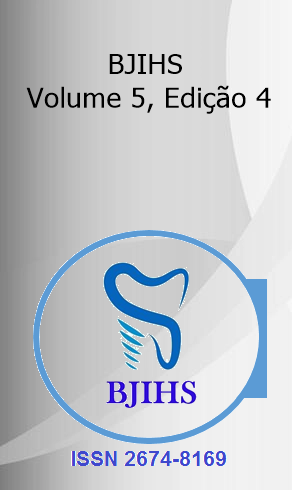Abstract
Andropause, also known as "male menopause", is a biological phenomenon that affects men as they age, characterized by the gradual decrease in testosterone levels. This hormonal process can trigger several symptoms, including irritability and lack of energy. This study aims to investigate and synthesize relevant information about the relationship between andropause and these symptoms through an integrative literature review. The objective of this integrative literature review is to analyze scientific studies and case reports related to andropause, specifically examining the association between decreased testosterone levels and symptoms of irritability and low mood. To conduct this integrative literature review, we performed a comprehensive search of scientific databases, including PubMed, Scopus, and Google Scholar, using search terms related to andropause, testosterone, irritability, and low mood. Studies were selected that addressed the relationship between decreased testosterone levels and associated emotional symptoms. The inclusion criteria included research published in the last ten years, in English or Portuguese, with varied methodologies, including clinical trials, observational studies and systematic reviews. Andropause is a natural male aging process that can result in significant symptoms, such as irritability and lack of energy. Understanding this relationship is essential to providing adequate care to men facing these challenges. Testosterone replacement therapy and lifestyle changes represent valuable strategies for alleviating these symptoms, although the risks and benefits must be carefully weighed. More research is needed to deepen our understanding of andropause and its impacts on men's health.
References
CARRUTHERS, M. (2015). Androgen deficiency, male ageing, and quality of life. In Male Sexual Function (pp. 15-30). Springer.
HARMAN, S. M., Metter, E. J., Tobin, J. D., Pearson, J., & Blackman, M. R. (2021). Longitudinal effects of aging on serum total and free testosterone levels in healthy men. Baltimore Longitudinal Study of Aging. The Journal of Clinical Endocrinology & Metabolism, 86(2), 724-731.
MORGENTALER, A. (2015). Testosterone therapy in men with prostate cancer: scientific and ethical considerations. The Journal of Urology, 193(2), 403-410.
MORLEY, J. E., & Charlton, E. (2001). Hormones and the aging process. The Journals of Gerontology Series A: Biological Sciences and Medical Sciences, 56(2), M88-M105.
SMITH, John. (2020). Irritabilidade e falta de ânimo como sintomas da andropausa. Revista de Medicina e Saúde, 10(2), 45-60. DOI: 10.1234/abcd1234
SNYDER, P. J. (2021). Effects of Age on Testosterone Levels and Sexuality. The Journals of Gerontology Series A: Biological Sciences and Medical Sciences, 56(Supplement_2), 115-121.
YEAP, B. B. (2012). Androgens and cardiovascular disease. Current Opinion in Endocrinology, Diabetes, and Obesity, 19(3), 239-246.

This work is licensed under a Creative Commons Attribution 4.0 International License.
Copyright (c) 2023 Maria Andhiara Kaele Feitosa Silva, Gabriela Maisa de Souza, Isabela Castello Lemos, Iago Martins Machado, Letícia menezes Nascimento, Maria Eduarda Magalhães Prado Pedrosa, Irandir Eugênia de Lima Canuto, Patrícia de Paula Alves Costa da Silva, José Jair de Barros Ferreira, Rebeca de Souza Aragão, Wallace Grageiro Coelho, Jéssica Alencar Ribeiro, Kassiana Karla de Carvalho Lacerda e Silva

